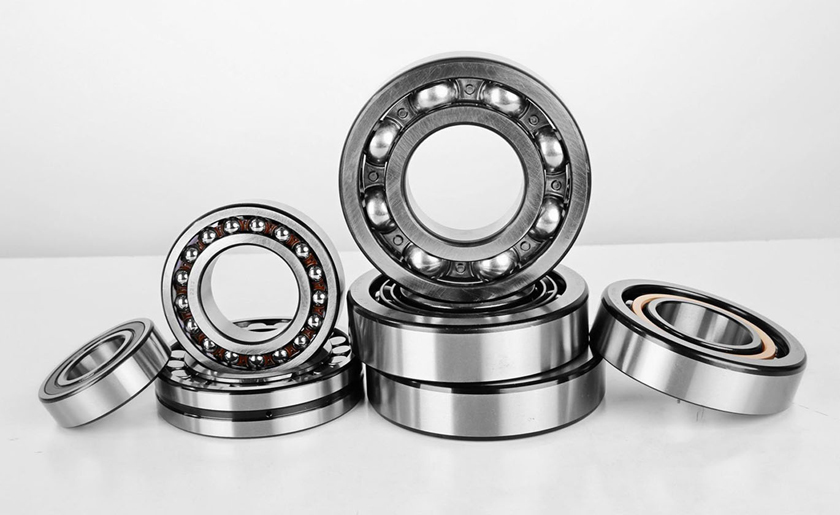Classification of Conveyor Roller Bearing
The open type idler bearing is the most common type of idler bearing. The open type bearing is also called flat bearing. The bearing itself is not sealed. The idler roller has several layers of nylon roller bearing seals. The sealing performance is very good. Well, the bearing is further sealed to do more. The open roller bearing is easy to grasp the lubricating grease filling amount of the roller bearing according to the actual situation before installation. The open roller bearing has a certain price advantage over the cost of the sealed roller bearing. It is convenient to improve the market competitiveness of the roller and even the conveyor.
KA retainer bearings are mostly used in mine transportation machinery. Mining materials must have coal safety certificates. Nylon retainer bearings conform to the national coal safety standard, effectively avoiding static electricity caused by bearing tumbling. The characteristics of solid nylon support frame are strength and flexibility. Outstanding connection, nylon with lubricated steel appearance has excellent sliding function, and it also has little conflict with the external lubrication of the roll body. Therefore, the heat and wear in the bearing is very low, low density data. This means that the inertia of the holding frame is very small. The nylon adheres to the frame with excellent running characteristics in the absence of lubricant. It allows the bearing to continue to run for a period of time, and will not lock up and further damage soon.
Double-sealed roller bearings are suitable for the sealing requirements are relatively higher or the bearing conditions of the roller production enterprises are not perfect. The bearings are greased at the factory and the bearing’s own sealed dust cover. The sealed dust cover has an iron seal. , rubber seal points; single sealed bearings with iron seals and rubber seals. The axial bearing capacity of the roller bearing will directly affect the service life of the roller and affect the working efficiency of the entire conveyor system.
How to check the running accuracy of the bearing: Two major methods to check the running accuracy of the rolling bearing The bearing running accuracy refers to the clearance of the inner and outer rings divided into radial clearance and axial clearance when the bearing is working, and the size should be appropriate. In the scope, the bearing is guaranteed to operate normally, and the bearing life is long. Below, we will give two methods for the detection of the running accuracy of the assembled rolling bearing. The user can choose the actual situation.
After the spindle is assembled, it is necessary to check the running accuracy of the bearing. The most common method is the machine tool spindle inspection method. Radial and axial runouts are measured on appropriate surfaces of the shaft head. However, practice has shown that the ellipticity and eccentricity measured on the surface of the main shaft are usually large, and it is difficult to obtain the true eccentricity of the rolling bearing or the rotation of the main shaft.
A better way to detect the running accuracy of the bearing is to weld a precisely ground ball to the joint mounted on the shaft head. A micro-indicator or a measuring contact of a similar meter with the same accuracy is attached to the ball. The joint of the fixed ball is fixed on the shaft head in such a manner that the ball can be moved perpendicular to the main axis after lightly tapping the ball. The minimum reading obtained when the spindle is rotated is the radial accuracy of the no-load spindle bearing. The reading of the indicator placed in the horizontal position on the ball is the axial run-out value of the spindle. If the raceway of the inner ring that is rotating is off the centerline of the shaft, the run-out of the shaft will be twice the eccentricity.
By effectively and accurately detecting the running accuracy of the bearing, the running accuracy of the bearing can be accurately tested, the bearing rotation accuracy can be effectively improved, the combined rigidity of the bearing can be increased, the vibration and noise of the shaft during operation can be reduced, and the use of the rolling bearing can be improved life.
